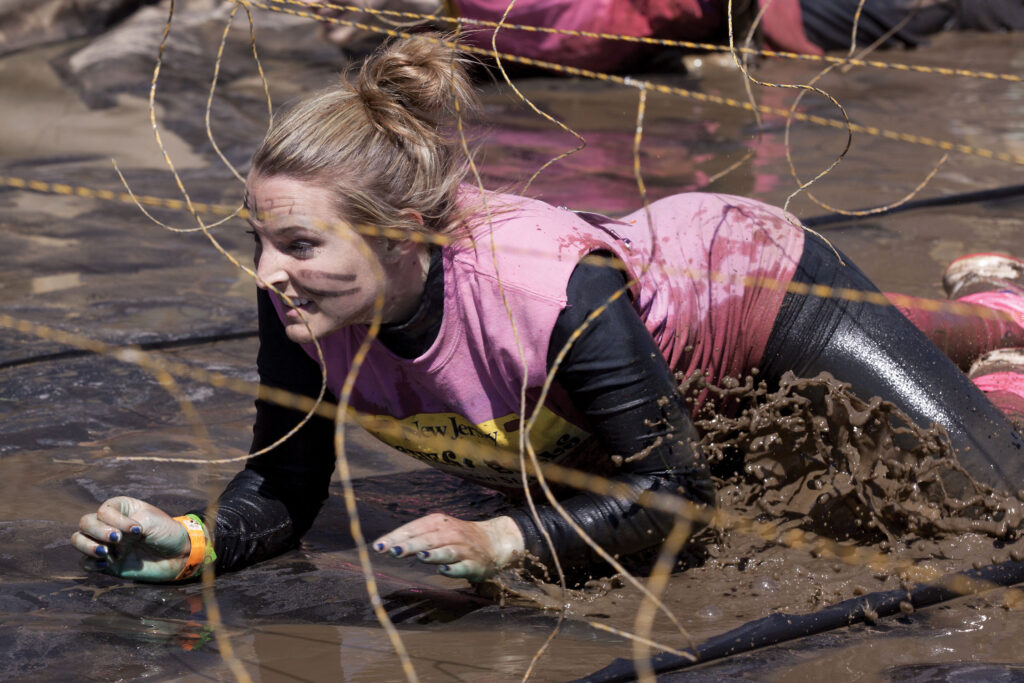Advertisement
Should You Tackle a Tough Mudder?
It's definitely tough, but it might also be life changing

A lot of research has been done about the generation now in their twenties and thirties, who are more connected globally but have fewer daily interactions at a local level. Headlines suggest loneliness and depression are running at record levels, even among groups that appear by other measures to be outwardly successful.
A recent Pew Research Center paper characterizes this generation as “nones,” on the basis that when asked to tick boxes about political or religious or other social organizations or clubs to which they belong, that is the box many check. Yet the human need for community, for belonging, has not gone away. People still aspire to feel part of something bigger than themselves. And the question arises—how do we address that need in new ways?
One of the things that people, especially young people, increasingly gather around is an idea of well-being. They have seen the junk food and workaholic lives of their parents’ generations, and many of them rebel against it. The trend toward fitness and health has grown consistently over 40 years (even as lifestyles militate against it).
We’re spending more time thinking about how we can live happier, healthier lives. We look for dramatic experiences that might enhance them. Often, though, we approach this ambition with the same seriousness with which we have long been invited to approach work. We seem to struggle sometimes with the idea of being able to goof around and have fun and relax and play.

Bodies can become symbolic of this seriousness. We make a conscious effort to avoid promoting ideals of body types at Tough Mudder. The line that you must take your fitness seriously to complete an event but you absolutely cannot take yourself seriously runs through all our communication. Six-pack abs and zero body fat are great for some, but they are not a Tough Mudder requirement. All shapes and body sizes are equally welcome on our course.
Still, signing up for an event certainly tends to concentrate the mind. Twelve miles up and down muddy hills and over obstacles is not something you’d be advised to take on from a standing start. The six or nine months before it happens generally involve at least some kind of determined couch-leaving regimen.
One example is Gaby Martinez. She completed a Tough Mudder in Illinois in 2013, wearing a T-shirt that said, “I used to weigh 330 pounds and I have just run past you.” She was just about 170 pounds lighter than that when she received her first Tough Mudder headband. That T-shirt commemorated the darkest time in Martinez’s life, when she was 24 and her husband left her with their three-year-old son.
Like many of us, looking back, Martinez can’t separate her weight issues from her mental health at that time. “I was in a bad depression because I was so heavy, and I was eating because I was so depressed. I couldn’t break that circle,” she says.
Martinez’s friends encouraged her to go to the gym, but given the stigma about body shapes, she was too embarrassed originally. “I actually started working out at home,” says Martinez. “That was my starting point.”

At the same time, she gave up buying junk food. And the more she exercised, the less she craved salt and sugar. People began to tell her she had great willpower. Developing willpower became unavoidable because maintaining the change became such a big part of her life once she started to shed weight.
A couple of years later, she did her first Tough Mudder. That first one she did with a friend. The most recent was with her new husband and brother- and sister-in-law.
Martinez’s T-shirt provoked some laughter. Best was when she ran past a group of guys, pretty tough guys, who had slowed to a walk; when they read what was written on her T-shirt, they all laughed and told her, “Good job!”
“It’s funny,” she says. “I don’t have the upper body strength, but I do have endurance. I find I can just keep going and going, which is something I would never have imagined.”
In many ways, the best part of that determination is that Martinez sees it rubbing off on those around her. Her son, now in his teens, appreciates that effort. She is proud of the fact that he will say, after her example, “Mom, I won’t eat dessert today because I’ve eaten dessert a couple of days a week already.” She thinks he makes healthier decisions knowing what the effects can be.
She laughs about having become the go-to person for any of her friends looking to get in better shape. But she tells them what she has learned: that there is no magic pill, that it’s about eating and exercising, drinking water over soda.
“I just tell them you have to make the decision in your head … just make it and stick to it,” says Martinez. After that, she says, anything is possible.
From It Takes a Tribe: Building the Tough Mudder Movement by Will Dean, published on September 12, 2017 by Portfolio, an imprint of Penguin Publishing Group, a division of Penguin Random House, LLC. Copyright © 2017 by Will Dean.





